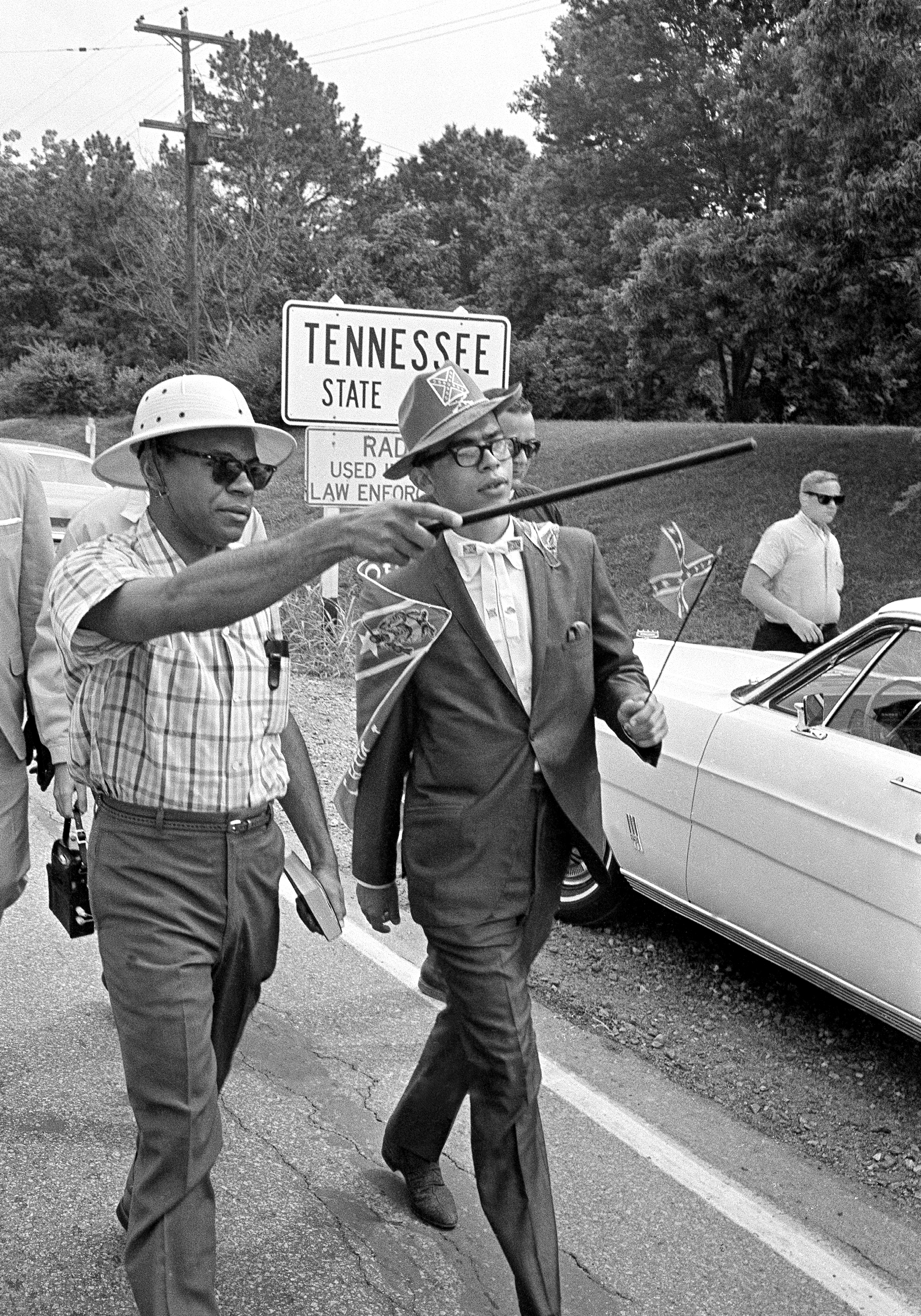
Fifty years ago Monday, James Meredith was shot and wounded on the second day into his attempt to walk from the Peabody Hotel in Memphis to Jackson, Miss.
At the time, he was a 33-year-old Columbia Law School student with only a Bible in hand. He was already famous within the Civil Rights Movement as the man who won the right, via the Supreme Court, to be the first black man to attend the all-white University of Mississippi. His aim now was to encourage African-Americans to walk with dignity in a region where that had long been difficult and to register to vote without “fear of terror of abuse by either officials or unofficial people,” as the now-83-year-old recently recalled, speaking to TIME by phone.
“What I had set out to do happened in the first place I came to,” he said. “When I walked up to the square in Hernando, [Miss.,] not a black could be seen, only whites. But on the backside of the courthouse, there was just about every black in that county of Mississippi, ready for change in their lives.”
Shortly after the visit, however, a hardware store clerk named Aubrey Norvell drove by and shot him along Highway 51, just south of the town.
The Civil Rights Movement’s most prominent figures—ranging from the Rev. Martin Luther King Jr. to Stokely Carmichael, whom TIME called “the most militant of all civil rights leaders”—swooped in to finish to trek for him, what became known as the “March Against Fear.” It is said to have grown to as many as 15,000 people once it reached Jackson on June 26, 1966. By the end, between 2,500-4,000 African Americans were said to have been added to state’s voting lists, according to some counts.
Get your history fix in one place: sign up for the weekly TIME History newsletter
Looking back, Meredith, considers the effort a “total success” in terms of the goal to “change the whole direction” of the movement. Still, the coming of organized (and competing) Civil Rights groups did change the concept of what had started out as a solitary action. “‘Blacks were too scared to do anything, but they came out to greet James Meredith’: That would have been the story in the evening news if I hadn’t gotten myself shot,” he said. “But I got shot and that allowed the movement protest thing to take over then and do their thing.”
But that’s not to say he doesn’t have anything to say about protest movements. Looking at the activism of the modern heirs to the 1960s Civil Rights protesters, he said that he believes that the black community is even less cohesive than it was back then, as the most successful black Americans, in his view, have turned away from those who have less. Nowadays, he worries that African-Americans are “scared to death mostly of each other”:
What I have seen since Ferguson is what everyone knows and no one talks about. The black elite used to be in the same physical setting as all the other blacks. So whatever benefits they had, the other people enjoyed. Today, the blacks who have been able to benefit from improvements that have been available over the 50-60 years don’t even see—much less know—the poor, unconnected blacks… the people who have been suffering. The elite blacks doing the talking on TV wouldn’t go near Ferguson. They’re powerless to do anything, except try to keep their jobs.
He believes the two sides could be brought closer together through more mentorship programs, and that the church—especially in a place like Mississippi—is the right vehicle for such a program.
And so, as part of the 50th anniversary of the March Against Fear, he’s heading back on the road, spreading the word about his mentorship idea in speeches he’ll give across Mississippi. He has done a number of symbolic walks over the years, and his latest will take place on June 11, when he’s expected to walk from the Peabody Hotel to the National Civil Rights Museum, at the site of the Lorraine Motel, where Martin Luther King, Jr. was assassinated. Along the way, he hopes to remind people of what came before.
“At least 90% of blacks in Mississippi never heard of James Meredith, much less the Meredith march. By the end of the summer that’s going to be reversed,” he said. “I only made it to one black community in 1966. All the rest of the communities in Mississippi still got to be gotten to.”
More Must-Reads From TIME
- The 100 Most Influential People of 2024
- The Revolution of Yulia Navalnaya
- 6 Compliments That Land Every Time
- What's the Deal With the Bitcoin Halving?
- If You're Dating Right Now , You're Brave: Column
- The AI That Could Heal a Divided Internet
- Fallout Is a Brilliant Model for the Future of Video Game Adaptations
- Want Weekly Recs on What to Watch, Read, and More? Sign Up for Worth Your Time
Write to Olivia B. Waxman at olivia.waxman@time.com